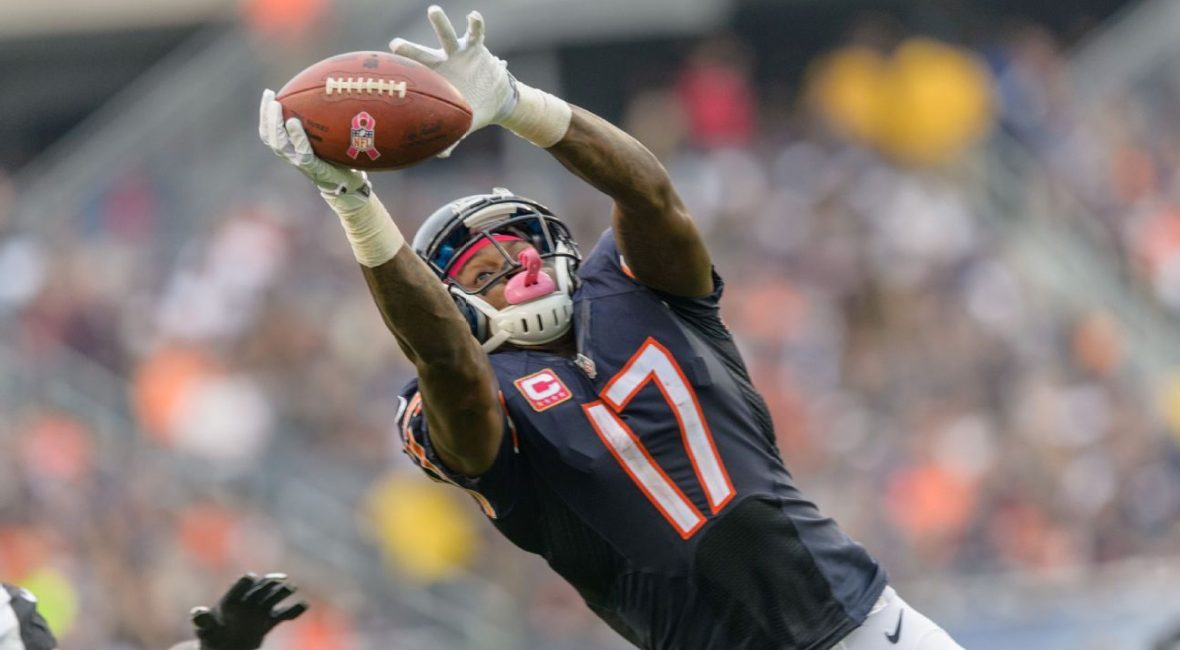Can Bears keep Alshon Jeffery without franchise tag?

The Chicago Bears have taken a passive stance on the issue of Alshon Jeffery’s contract since the end of the regular season.
Without a multiyear agreement in place before the new league year begins on March 9, the Bears risk the strong possibility of losing Jeffery to another club in free agency.
That is, of course, unless the Bears apply the franchise tag for a second consecutive year at a cost of approximately $17.5 million. Teams have from now until 4 p.m. ET on March 1 to designate franchise players. The Bears waited until late in that window to tag Jeffery in 2016.
Jeffery’s demands aren’t exactly a mystery. Because it’s rare for an upper-echelon receiver to hit the open market, Jeffery — who just turned 27 years old — can expect to be paid in excess of $12.5 million per year.
Nobody is saying Jeffery is a better player than Green, Jones or Bryant, but teams generally re-sign their No. 1 receivers. Star players are almost always slightly overpaid in free agency, and Jeffery will be no different — unless the Bears prevent him from testing free agency.
Jeffery also wants to play for a winner. That is an important variable in the event Chicago declines to tag him but truly wants to keep him — which is uncertain. One of the only things Jeffery ever discusses with the media is his desire to win. That comes across as authentic. He doesn’t strike me as a “smash-and-grab guy” who’ll sign with a bad team just because they offer slightly more money.
Many scoffed when Jeffery boldly predicted the Bears, 3-13 in 2016, would win the Super Bowl next season. The Bears were not laughing. Not only did general manager Ryan Pace and head coach John Fox publicly support Jeffery’s comments, they backed him up privately before players left for the offseason. The Bears need big-name players such as Jeffery or Kyle Long to talk openly about winning. The franchise has been in the dumps for far too long. As Fox said, “you have to believe it before you do it.”
But are the Bears there yet? That’s tough to answer. Conventional wisdom suggests the Bears are at least another year or two away from being legitimate contenders (if it happens). Jeffery probably prefers to join a winner this offseason, but all of that is moot if the Bears use the tag.
The $17.5-million figure is a big number for one season, but the Bears are flush with salary-cap space. And the NFL’s cap is going up this year. Plus, Chicago paid Jeffery $14.599 million in 2016, so it’s not as if they’re opposed to carrying a large cap number for one player.
After Cameron Meredith — a nice No. 2 or No. 3 option — what else do the Bears have? Can they find a receiver better than Jeffery in free agency or the draft? To me, that’s what it boils down to.
If the answer is no, then how does letting Jeffery go make the Bears a better team? If the goal is winning games, then finding a way to keep Jeffery — even for just one more season — ought to be a priority. A second franchise tag is expensive, but it beats letting a 27-year old, top-10 wide receiver walk away for nothing.




